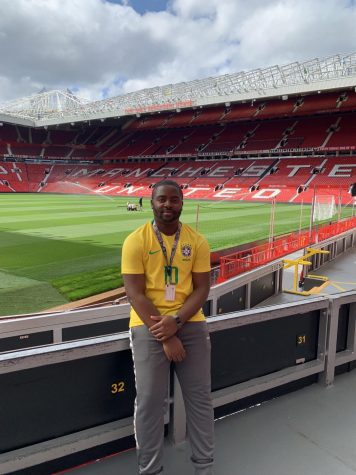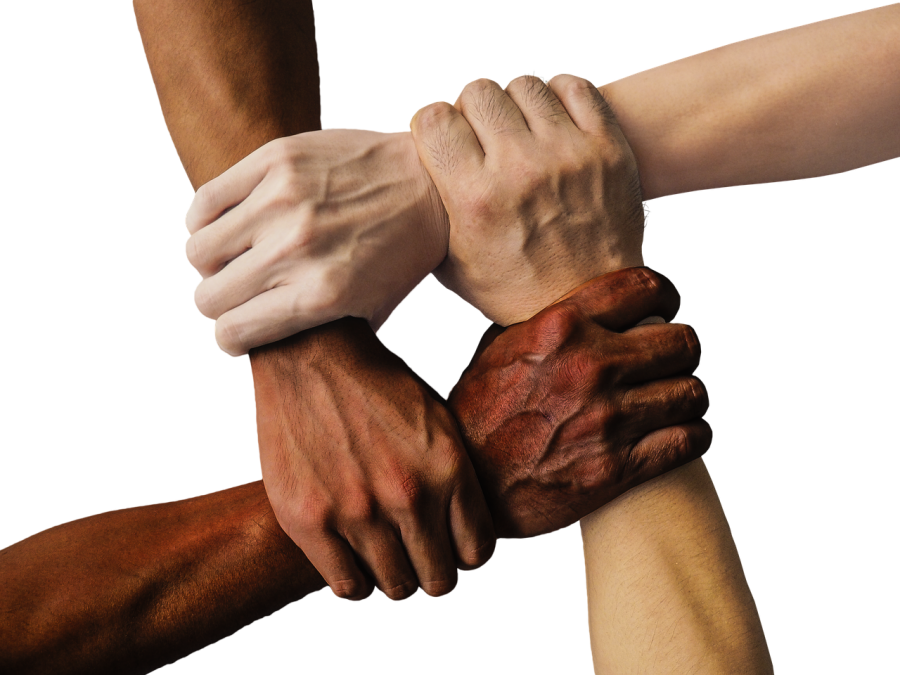Mercy host Diversity Lunch and Learn Series Focused on DACA
Mercy College hosts a diversity lunch and learn series where they present an open forum for discussion on a topic that is chosen by student life every Month.
The November topic was on Immigration and DACA. The topic of immigration and Daca is a very relevant topic in todays society, so it was important to hear different people’s perspective on the issue.
The Assistant director for the office of Student Life, Louis J. Cameron III, who implemented the diversity series, wanted to address the issue during the event.
“It was something that I wanted to talk about and it was something some of our staff members wanted to talk about,” Louis said. I know that it was something that a lot of our students’ population and families deal with. So, it was a great opportunity for me to bring into the conversation on Daca and Immigration. We were able to talk to students on what all that means and how it pertains to us even if we aren’t undocumented individuals.”
Throughout the Diversity Lunch and Learn Series on Immigration and DACA, various videos were shown to explain the complexity of the issue.
DACA stands for Deferred Action for Childhood Arrivals. This program was created under President Barack Obama. Daca was created for young people who were brought to the United States illegally as little kids. The program allows young kids to stay in the country. To be eligible for DACA, the person who is applying must not have any violent or bad criminal history and they had to be living in the United States since 2007. All recipients had to enter the United States before the age of sixteen.
Applicants who were granted protection under DACA didn’t have to worry about the threat of deportation. Young Dreamers were proved the opportunity to work in the United States under this program and they had to renew their status every two years. Another requirement for anyone who was applying for this status was that they must be in school or have a high school certificate showing that they completed all their requirements, or they must have a GED, or the person who is applying must be a veteran who was discharged honorably from the Armed Forces or the Coast Guard.
However, DACA was ended under the Trump administration and now many young people are left not knowing what is next for them. Most fear they will face deportation because the DACA program helped protect them from that.
The issue of DACA is very important for college students. This diversity series allowed students to think and interact with each other to understand everyone’s thoughts on immigration and DACA. Some believed that DACA was a good program, but believed it was lacking in execution. They brought up the point that young people who are granted temporary status under the program still fear for their parents. The students said that DACA recipients fear that their parents might be deported because they are not protected under the program and that is an area they think could be improved.
“We have a lot of undocumented students,” Cameron said. “My goal is to always to get people to think out side of themselves. It’s important for us to understand ourselves, our identities, the way we walk through life and navigate the interactions we have. We are never going to be a better society if we don’t start thinking about others and the things, they go through. When it comes to Daca what does it mean for those individuals who are protected by Daca, but who are potentially living in fear that it may be taken away.”
As the session went on the topic of citizenship, privilege was broached. A checklist was handed out to students and it listed all the privilege a U.S citizen has. Some students disagreed with various ideas that where on the list of what they constitute as a privilege for citizens.
Someone brought up the point that even when one is a United States citizen and a police officer pulls that person over, a person might not feel singled out because of their perceived immigration status but people of color (who are legal citizens) still fear these types of interaction with cops. Students were very engaged during the presentation and discussion portion of this series.
“I always ask is there any parts of this that people disagree with, which showed today when we read through the list of privilege,” Cameron said. Its good because it gives us something to talk about. A lot of students have said that they enjoy having a space to talk about things like this and they wish that other people will come to it.”

Chevaughn Hurst is a senior majoring in media studies with a concentration in journalism. He grew up in Jamaica and migrated to the United States at the...








